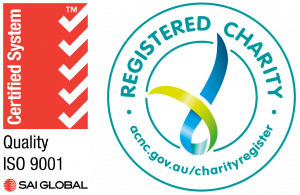
CEO foreword
Pictured: NWMPHN Chief Executive Chris Carter.
Add your title here
This is the text area for this paragraph. To change it, simply click and start typing. Once you've added your content, you can customize its design by using different colors, fonts, font sizes and bullets. Just highlight the words you want to design and choose from the various options in the text editing bar.
This is the text area for this paragraph. To change it, simply click and start typing. After adding your content, you can customize it.
Change is a process that in general happens gradually; reforming change even more so.
The Commonwealth Government’s launch of MyMedicare, along with associated measures, might have created the expectation that much-needed changes to Australia’s primary health care system would roll out swiftly – a process of revolution rather than reform.
This financial year has, rightly, tempered that expectation. Too many changes, too quickly implemented, raise the risk of misunderstanding and miscommunication.
MyMedicare is a foundational measure, a necessary first step.
A large part of NWMPHN’s work through the year has been tied to helping general practices in our catchment adjust and adapt to changing conditions.
For our team, this has involved supporting practices – and patients – to register for MyMedicare.
We also played an important role in encouraging and explaining to clinicians, aged care professionals, and older residents the importance and benefits of the Government’s General Practice Aged Care Incentive.
... payment models that give practices autonomy and flexibility ...
Add your title here
This is the text area for this paragraph. To change it, simply click and start typing. Once you've added your content, you can customize its design by using different colors, fonts, font sizes and bullets. Just highlight the words you want to design and choose from the various options in the text editing bar.
This is the text area for this paragraph. To change it, simply click and start typing. After adding your content, you can customize it.
As they mature, these new frameworks will provide certainty, support and continuity of care for health system users, as well as income streams for general practice.
We wait, too, with cautious optimism for the Government’s response to the review of General Practice Incentives. General practice is the beating heart of our health system. It needs to be supported through payment models that give practices autonomy and flexibility to use funds to better support team-based care.
But change is not always easy, and not always smooth. Recognising this, NWMPHN plays an important intermediary role in the process. Just as we disseminate information and resources to the health sector and public about changes to the system, so too do we alert government about issues and barriers arising.
One of our missions has always been to advocate for primary health care professionals, to support the creation and delivery of equitable care. We are an independent organisation, with an independent voice.
This year, as ever, we have not been afraid to speak.
For example, we were visible as strong supporters of The Voice to Parliament referendum. Following its defeat, we repeated – in public, and in conversations with the organisations we fund and commission – our support for First Nations people.
We have also spoken out in support of the central role of GPs in keeping patients out of hospital, the importance of nurse and pharmacist immunisers, eliminating modern slavery, tackling family violence and protecting at-risk communities.
... service delivery and integration are being gradually reshaped.
Add your title here
This is the text area for this paragraph. To change it, simply click and start typing. Once you've added your content, you can customize its design by using different colors, fonts, font sizes and bullets. Just highlight the words you want to design and choose from the various options in the text editing bar.
This is the text area for this paragraph. To change it, simply click and start typing. After adding your content, you can customize it.
Some matters, too, have been important and impactful, but not the stuff of headlines. For example, NWMPHN has continued to lead the statewide rollout of priority primary care centres, which were recently rebranded as urgent care clinics in line with changes to state and federal funding arrangements.
The standardisation of name for these valuable additions to the health care landscape will go a long way to boosting public recognition and understanding of the services they provide. This in turn, will relieve pressure on general practices and emergency departments – and save time and ease anxiety for patients.
NWMPHN is a major commissioner and champion in the field of mental health, and this financial year has been a time of fluid and evolving conditions. Activities and reform agendas built by the State and Commonwealth mean that service delivery and integration are being gradually reshaped.
Our role has been to assist in this process wherever possible. Our intent, however, is resolutely to ensure that the people in our community who need mental health care support continue to receive it.
At a time when young people face unprecedented stressors and are increasingly reaching out for mental health support, we have worked with our headspace providers on innovative ways to reduce wait times.
We’ve also worked with local psychologists to test how reform levers – like the Australian Government’s Initial Assessment and Referral Decision Support Tool – can be used in culturally responsive settings.
Allied health is also, of course, an important sector, also undergoing significant change. NWMPHN has been active integrating its practitioners into other sections of the primary health care system, particularly in general practice and aged care.
This kind of alignment is a good example of the next set of major changes now emerging, which centre around the principle that the creation of multidisciplinary teams – with GPs at their centre – is the best way to achieve effective outcomes for the public and for the sector.
Joining up service delivery across as many aspects of health care as possible ensures that work is coordinated. Not only does this result in a system that is more efficient, it means that patients do not have to navigate service environments that can be challenging and confusing.
You will hear much more about multidisciplinary teamwork across the next couple of years. It is a system-wide reform – and, like all such reforms, best done carefully.
And careful change is what NWMPHN is really good at. We look forward to the roles we have to fill, the changes we have to make, and the words we have to speak.

